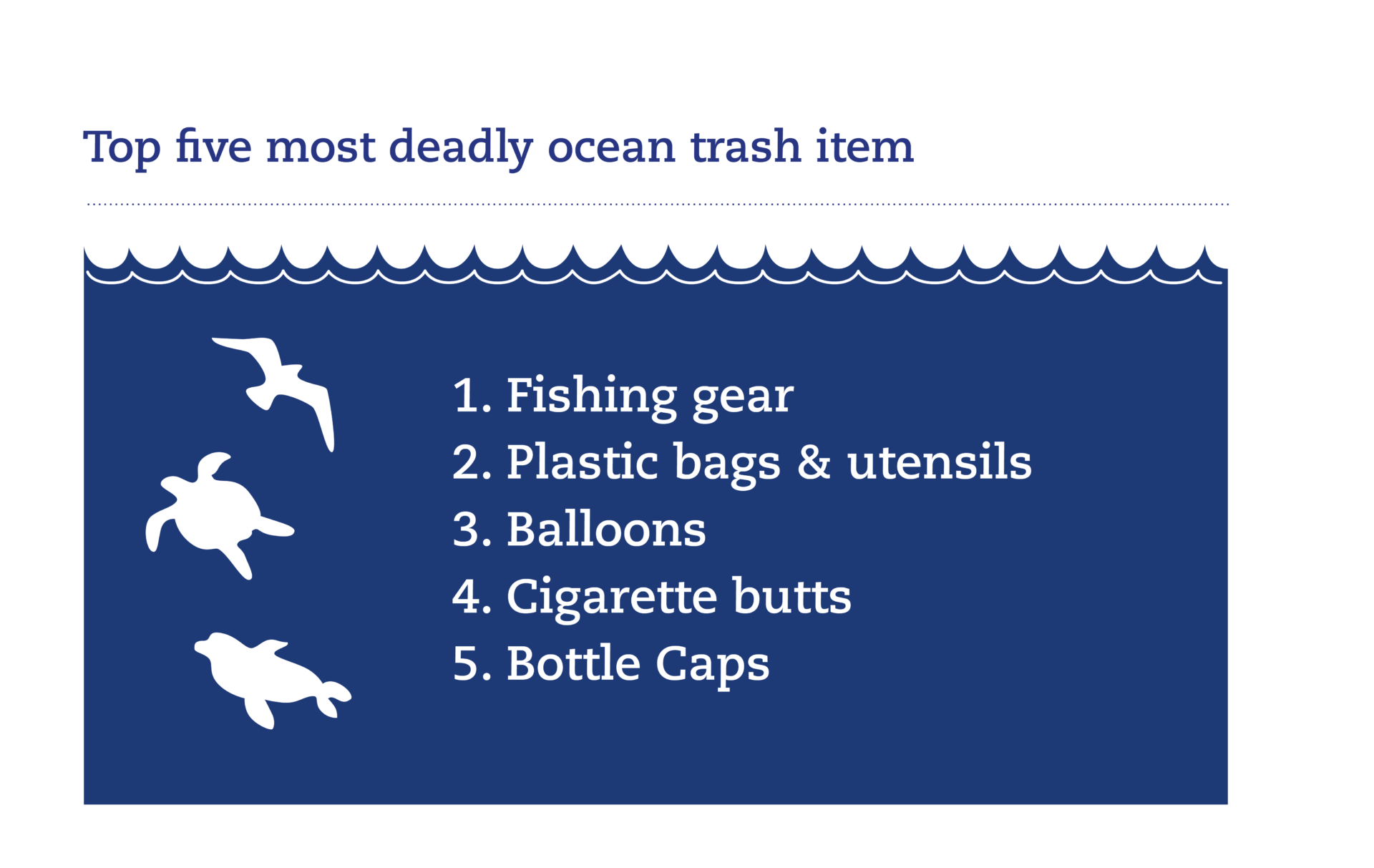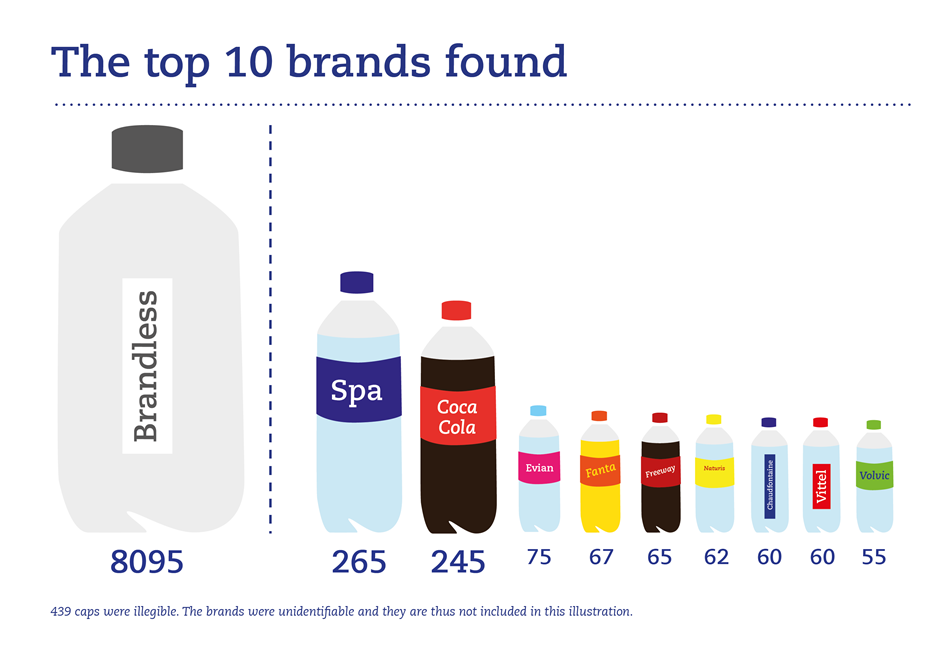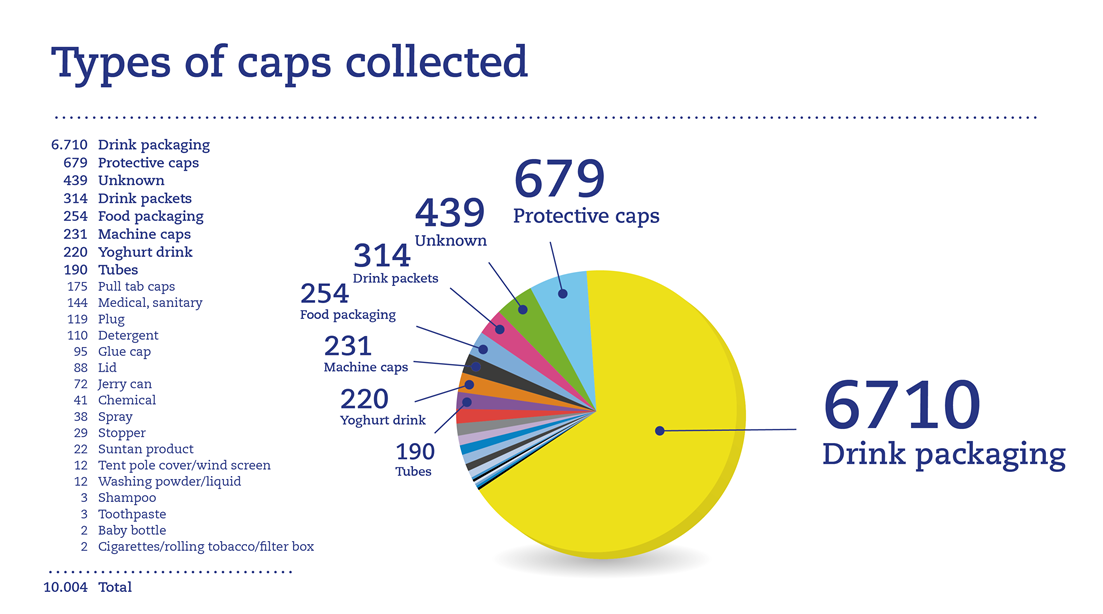Plastic caps are among the top five most harmful ocean trash items. Marine mammals, birds and fish often see plastic bottle caps as food, with potentially fatal consequences. In summer 2016, over 10,000 caps were collected along the entire Dutch North Sea coast and analysed one by one by the North Sea Foundation, member of Seas At Risk. This is the first time pollution from plastic bottle caps has been researched this thoroughly. This research is important for successfully addressing this pollution at its source.

The most important findings of the analysis:
- 10,004 bottle caps were collected from the Dutch North Sea coastline during the 2016 Boskalis Beach Cleanup Tour,
- more than 80% came from beverage and food packaging,
- the most common bottle cap colours that were found were blue and white (common colours for bottled water packaging),
- 80% of the bottle caps had no branding visible,
- more than 70% were damaged, ranging from slight to severe damage, indicating that the bottle caps had been floating at sea for a long time,
- the number of bottle caps found on the beach per kilometre numbered between 20 and 128.

Conclusions drawn from a survey of literature:
- bottle caps are among the top 5 items found during beach cleaning and beach litter monitoring around the world,
- over the last 30 years, more than 20 million bottle caps and lids were found during beach cleaning activities around the world. Currently, it is unknown how many bottle caps actually enter our oceans and wash up on shore,
- plastic bottle caps are made of hard plastics and degrade very slowly,
- plastic bottle caps are among the top 5 most deadly ocean trash items.
Solutions:
Plastic bottle caps do not belong in the sea. The North Sea Foundation advocates for dealing with bottle caps at the source and for good waste management on land and at sea. To deal with bottle cap pollution, the North Sea Foundation suggests the following solutions:
- government: introduce deposits for disposable plastic (single-use) drink packages, including the caps,
- industry: develop new types of packaging so that plastic leakage will no longer be a problem,
- consumers: use as many reusable bottles and caps as possible, and dispose.
The North Sea Foundation hopes that this report encourages industry, governments and citizens to help resolve and reduce plastic cap pollution to maintain a clean, healthy ocean and a well-functioning ecosystem.

Posted on: 12 July 2017


